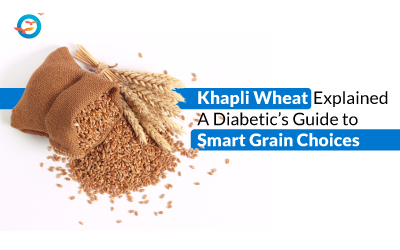Is Flax Seed oil Safe for Diabetes?

Flaxseeds for Diabetes
The number of people suffering from diabetes is rising day by day and so is the number of pre-diabetics. Sensing the alarming situation, doctors and researchers are trying to figure out what food, and what medicine can really help in lowering blood sugar levels effectively.
It has been found that flax seeds and linseed oil have many health benefits, especially in relation to diabetes. How exactly are linseed oil and diabetes connected?
Does flaxseed oil lower blood sugar?
Flaxseed oil has several health-promoting compounds with the potential to lower blood sugar levels and delay the development of type 2 diabetes. In this article, we will discuss flaxseed oil (linseed oil) and its unique benefits in relation to diabetes.
what is flaxseed oil?
Flaxseed oil or linseed oil is a colorless to yellowish oil obtained from dry seeds of the flax plant. linseed oil is acquired by pressing flax seeds.
Flaxseed oil Benefits
- Ii contains ALA (alpha-linolenic acid) one particular type of omega-3 fatty acid.
- This ALA is converted to EPA (eicosapentaenoic acid) and DHA (docosahexaenoic acid) in the body with the help of vitamins, minerals, and enzymes.
- One should consume at least 1 to 3 tablespoons daily.
- About 7 grams per tablespoon of linseed oil is by far the richest source of ALA.
- Research shows that consuming 1 to 3 tablespoons will guarantee conversion of ALA to 0.5 grams of EPA and DHA.
- Consumption of vegetable oils containing high omega-6 fatty acids should be reduced as they inhibit the conversion of ALA to EPA and DHA.
- Ideally, the dietary ratio of omega-6 to omega-3 fatty acids should be improved by decreasing omega-6 fatty acids and increasing omega-3 fatty acids which are essential for brain function and for the management of diabetes mellitus, cardiovascular diseases, thyroid, arthritis, and cancer. In the present world, this ratio ranges from 5:1 to 50:1. This ratio should be 3:1.
- It protects the heart, lowers cholesterol levels, improves skin health (regeneration and hydration), is anti-cancer, promotes weight loss, improves gut health (constipation and IBS), protects the brain, kidneys, and bones (joint pain and inflammation).
- linseed oil is a way to meet the daily requirement of omega-3 fatty acids and lignans.
What are the disadvantages of flaxseed oil?
- Research shows that consuming a lot of ALA is highly beneficial as it boosts blood levels of EPA, but does not have an effect on the DHA levels of blood. DHA is one of the most important fats needed for the brain.
- ALA must be converted to a limited supply of EPA and DHA. Only 10% to 15% has omega-3’s effects on the body. The remaining 80% to 95% is burned up as energy or metabolized.
- Higher omega-3 levels in the blood will longer the bleeding time and slower clotting time.
- Those who are allergic to flaxseeds should not consume flaxseed oil.
We, at FFD, advise people to take 1-2 tablespoons of flaxseed oil depending on their condition and have observed that it makes a lot of difference in their health.
FFD comprises a dedicated team of various experts who give you customized treatment which helps in speedy reversal. Join our IRP and fast-track your 'Diabetes Reversal'.
FAQs
Is flaxseed oil good for people with diabetes?
Yes, flaxseed oil is rich in omega-3 fatty acids, which can help reduce inflammation and support heart health, making it beneficial for diabetics.
Can flaxseed oil help control blood sugar levels?
While flaxseed oil doesn't directly lower blood sugar, it may help improve insulin sensitivity due to its omega-3 content, which is beneficial for diabetes management.
How much flaxseed oil should diabetics consume daily?
A typical recommendation is around 1-2 tablespoons per day, but it’s best to consult with a healthcare provider to determine the right amount for your needs.
Can flaxseed oil improve heart health in diabetics?
Yes, flaxseed oil contains omega-3 fatty acids, which can lower bad cholesterol and improve heart health, important for diabetics who are at higher risk of heart disease.
Can flaxseed oil help reduce inflammation in diabetics?
Yes, the omega-3 fatty acids in flaxseed oil have anti-inflammatory properties, which can help reduce inflammation often associated with diabetes.
Disclaimer:
This Blog solely serves our marketing purposes, for Authentic knowledge for this topic, Please join our upcoming Discover Reversal Session

